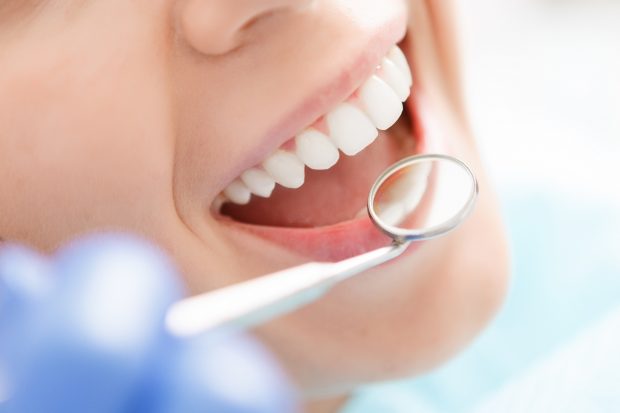Whitening your teeth gives an instant confidence boost, and it’s easy to do at home. However, while the process is safe and effective, it can cause short-term sensitivity for your teeth, especially if your teeth are already sensitive.
Tooth-whitening products work by sending peroxide or similar stain-cleaning agents deep into the porous outer layer of your teeth, also known as the enamel. In the process of removing stains, these ingredients can also dehydrate your teeth for a short time, making them more susceptible to pain.

However, with the right preparation, you can protect your teeth and avoid this sensitivity. Here are six tips for how you can brighten your smile without experiencing any painful consequences:
1. Read the Instructions
All tooth-whitening products are different, even those from the same company. They have different percentages of active ingredients, different instructions for application, and different recommendations for how long you should leave the treatments on.
The single most effective step you can take toward reducing tooth sensitivity after whitening treatments is to closely follow the directions for the product you’re using. Leaving treatments on for extra time won’t benefit your teeth – instead, it makes it more likely that your teeth will hurt later.
2. Follow With Sensitive Toothpaste
Using sensitive toothpaste right after whitening your teeth reduces the likelihood that you’ll experience sensitivity after the treatment. Sensitive toothpaste can help because most brands contain fluoride, a mineral that strengthens teeth and prevents sensitivity.
If your teeth are already sensitive, you probably have some of this toothpaste handy. You can also use a sensitive mouthwash and rinse instead of brushing after treatments. Whitening your teeth doesn’t make them fragile, but it can temporarily make them more sensitive than usual by opening and drying out the pores in your enamel.
3. Space Out Treatments
If you’ve followed the directions for a whitening treatment and you’re still experiencing sensitivity, try waiting longer between treatments. Everyone responds differently to tooth-whitening agents, and it’s more important to listen to your body than to follow instructions for timing exactly.
While spacing your treatments farther apart will make the whitening process take longer, it’s definitely worth the time investment to avoid painful teeth. After even one treatment, your teeth will be whiter and look fresher than before. What’s the rush?
4. Use Peroxide-Free Agents
For some individuals, even spacing out treatments isn’t enough to stop tooth sensitivity. In that case, you can try a whitening product with a bleaching agent that’s less harsh than peroxide. There are many different products out there, so it’s best to ask your dentist for a trustworthy recommendation.
Products with a stronger bleaching agent are more effective and act faster. However, higher percentages of a strong agent also make it more likely that your teeth will hurt after treatments. For those with very sensitive teeth, gentle treatments spaced far apart are best.
5. Avoid Extreme Temperatures
If you follow these steps and your teeth are still experiencing sensitivity after tooth-whitening treatments, the pain should only last a few days at most. In the meantime, you can protect your teeth by using sensitive toothpaste and avoiding extreme temperatures.
Tooth sensitivity usually starts in the lower front teeth and then spreads to affect other areas of your mouth. Unfortunately, these teeth are the first to feel cold air and food. Bundling up and avoiding icy lattes and steamy hot chocolate for a few days can reduce the pain your teeth feel until they can recover.
6. Drink Lots of Water
Another way you can help prevent tooth sensitivity after whitening treatments is by staying hydrated. The bleaching agents in tooth whitening products dehydrate your teeth, making them temporarily more sensitive than usual.
Although your teeth will rehydrate naturally after a few days, drinking lots of fluids may help them to recover faster. Just make sure you drink tepid water or increase your water content through food to avoid extreme temperatures that could irritate your teeth.
Beauty Shouldn’t Be Pain
Many individuals can whiten their teeth with few to no side effects, but others may struggle with temporarily sensitive teeth after treatments. Individuals who already have sensitive teeth should be especially careful with tooth-whitening treatments. However, by following these six steps, you can reduce the likelihood of pain and invest in a bright, beautiful smile.



